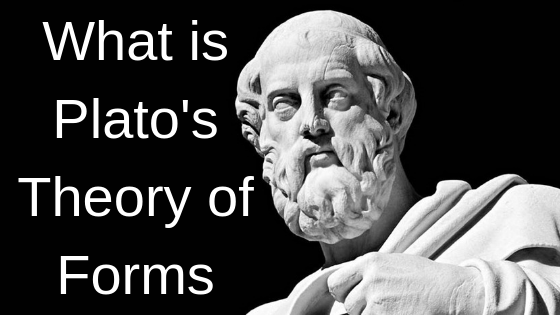The Forms of Plato
The Platonic philosophy of forms states ideal and perfect forms of things exist in a separate realm, and the physical world is a mere shadow of the perfect universe. He is quoted ‘“In the knowledgeable realm, the form of the good is the last thing to be seen, and it is reached only with difficulty. Once one has seen it, however, one must conclude that it is the cause of all that is correct and beautiful in anything, that it produces both light and its source in the visible realm, and that in the intelligible realm, it controls and provides truth and understanding, so that anyone who is to act sensibly in private or public must see it.” (Rowe, 215). In the ideal realm, they exist in perfect, timeless and abstract terms. They transcend space and time and pure in all forms. The physical world, according to Plato, is to a lesser extent, a mimic of the spiritual realm. Therefore, Platonic forms are the ideal forms of every object in the world existing in an alternate perfect reality.
Platonic forms exist in separate ideal existence. In this reality, all goodness of everything in the physical world exists in ideal conditions. He says ‘….and that in the intelligible realm it controls and provides truth and understanding so that anyone who is to act sensibly in private or public must see it.” (Rowe, 215). It exists in an ideal world free of physical changes and sensory manipulation. The ideal existence in a perfect dimension makes them values that can be used to determine how earthly objects and experiences measure up.
Plato suggests that proper knowledge of Forms happens when one realizes perfect forms of everyday experience or ideals. To learn these forms, one would immerse themselves in educating themselves on the ideal realms of everyday life and experiences (Whittaker, 133). The comprehension of the actual reality as it exists in the ideal realm is real knowledge. The philosophers were to guide people on proper forms as they are the standard-bearers of all states’ abilities. Thus, to know the forms, one has to seek knowledge of the ideal of everyday objects and experiences.
There is a good reason to believe in the existence of these forms in an alternate reality. Plato thinks the physical world is full of imperfection, and therefore we should approach it skeptically (Whittaker, 136). It this therefore possible that all the ideals man aspires to exist in ideal forms in a separate reality. Religion and spirituality teach their followers to aspire to piety and righteousness, which exists in pure forms in different realms. It is the closest a justification of Platonic forms. Religious and spiritual leaders would guide followers to seek perfect ways of life. It, therefore, is a confirmation that his philosophical ideas are in existence in some form in an alternate reality.
It is possible to see platonic forms in our lives. Plato is quoted, “Excellence is not a gift, but a skill that takes practice. We do not act rightly because we are excellent, in fact we achieve excellence by acting rightly.” (Vezina, 101). We can seek Plato’s forms in our lives by achieving excellence in all our activities. Individuals should work towards their best selves every day of their life. For example, artists should strive to work towards improving their craft each day. In the same way, students should work to being better at everything they do. These ideal forms push the levels of human capability and subscribe to Platonic forms. This is clear evidence that platonic forms are present in everyday life and experiences
In our lives, seeking religious and spiritual purity and excellence in our daily interactions are examples of Platonic forms. A spiritual person would hold his life to the highest standards required of his faith. Excellence in leadership is a Platonic form. Good leaders pursue and exhibit the best qualities that society strives to emulate. In doing this, they lead society to greater heights. Individuals still seek to be the best version of themselves. It is an unconscious way of living up to Plato’s forms. In this way humans can view Plato’s philosophy at work in their daily activities.
Conclusions.
. Plato’s ideal is that knowledge is true, accurate, and timeless. It, therefore, can be used to measure up against traditional knowledge. It is this idea that one should strive to achieve. It is worth noting that critics of the Platonic form believe that understanding can be dynamic; therefore, no ideal exists. In this regard, students should seek to work on the knowledge acquired and improve on it (Vezina, 101). The pursuit of excellence in all we do is a celebration of Platonic forms. The quest of human beings to be the best at all they do is the way of Plato. The striving to create ideal lives and improve each day is a Platonic quest to be excellent, to be the best that ever lived.







